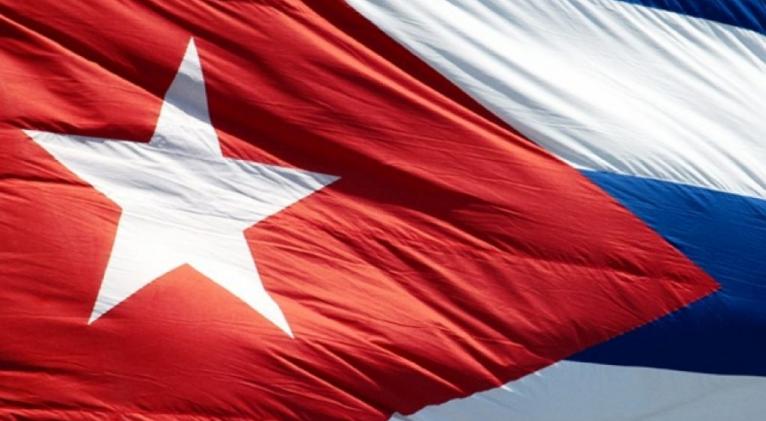2019: A year to continue succeeding
especiales

We’re seeing 2018 off, but some of the most important events that took place in Cuba throughout the year will continue to mark the nation's increasingly promising course.
When the historians of the future speak about this 2018, on the verge of saying goodbye, they will surely mention it as the year of the new Constitution for Cubans.
It happens that among the many events that decisively mark the events of a nation, the most important one is a new Constitution that guides the fate of the people. And that was approved in Cuba by the National Assembly on Saturday 22, reaffirming the socialist course of the Cuban Revolution.
It will be up to the people to give their approval in the referendum that will take place on February 24th.
It is an unprecedented event because of the way it was conceived and settled. The new Magna Carta is a text enriched with the contribution of the people.
Its main premise was a broad consultation with all and for the good of all that featured a total of 133,681 meetings, in which there emerged 783,174 proposals. Transparency, organization, responsibility and rigor distinguished these discussion assemblies in all levels.
As a result, the draft Magna Carta analyzed by the deputies comprised some 760 changes, including additions and eliminations of articles, phrases, words, etc., as an expression of the democratic and participatory nature of Cuban society.
And if that event would be worth to enclose in a highlight circle the year that ends alone, another equally significant reason joins it: as of April 19th, Cuba had a new president of the Councils of State and Ministers.
Miguel Díaz-Canel Bermúdez himself summed up this event during the closing of the Second Ordinary Session of the National Assembly of People’s Power’s 9th Legislature:
"The one that we bid farewell today will remain in our national memory as the year in which a new generation, gradually and progressively, in a clear expression of continuity, began to assume principal leadership tasks, with the good fortune of maintaining the guidance of the Historic Generation, in particular of Army General Raúl Castro Ruz, First Secretary of the Communist Party of Cuba."
On the face with a negative sign of the year, along with the pain of all Cubans, the unfortunate plane crash that occurred on May 18 in the vicinity of Havana’s International Airport, which left 112 people dead and a single survivor, who continues in full recovery. Diaz-Canel described it as "the worst news of this year for Cuba.”
Also among the events that hit the nation were the intense rains and floods caused at the end of May by Subtropical Storm Alberto in the central provinces of the country.
Although there was no loss of human lives, especially in Villa Clara, Cienfuegos, Sancti Spíritus and Ciego de Ávila, the damages were great. The affected homes totaled more than 9,900 and the number of damaged roads was considerable. The bridge in Zaza del Medio, Sancti Spiritus, collapsed. The rainfalls flooded 34,000 hectares dedicated to the cultivation of rice, beans, vegetables and tobacco.
Despite the strong impact of this meteorological phenomenon, inefficiencies, lack of control, and the excesses always present in the blockade imposed on Cuba by the United States, the Gross Domestic Product (GDP) showed a discreet growth of 1.2%.
Add to this the significant contribution of both tourism -which closes the period with a new record of international visitors- and the communications sector.
Connectivity grew over all, as well as mobile telephony service, which already has 700,000 lines.
But if the breezes were already good for that sector, where the so-called Wifi zones grew by more than 300, as well as Nauta-Hogar service with 60,000 homes connected to the internet, an expected news shocked the Island on December 6: the opening of the mobile data service for cell phones.
Although with tariffs that are still far from the aspirations and needs of Cubans, the novelty, as well as the boost to e-government, it constitutes another step in the process of computerizing society. It is a complex, expensive but very necessary process for the development of the country and thus leads to the political will of the government to promote it.
There is a long and complex road to walk when it comes to the quality of life of the inhabitants of this island, but we all can boast this year, and it has been like that since the revolutionary triumph, to have guaranteed the social services of Education, Culture, Sports and Health.
In this last sector, an infant mortality rate of 4 per 1000 live births, similar to that of 2017, continues to keep us with the lowest indicator in our history.
Of the total revenues to the country's budget, non-state forms of management taxed 12 percent. In particular, the nearly 600,000 self-employed workers contributed 5 percent to the said budget.
Increasing foreign investment remains as an imperative. “The economic battle is the main and most complex task”, said Diaz-Canel.
With this conviction, those of us who encourage this Largest Antillean island will open the doors to the new year, which, according to the president of Cuba, “2019 will comprise legislation, passion and pride for what we are and what we’ll be.
Translated by Jorge Mesa Benjamin / CubaSi Translation Staff













Add new comment